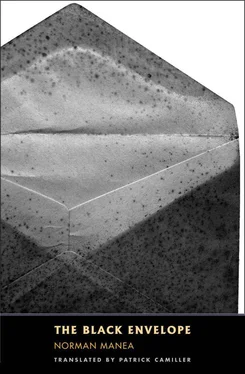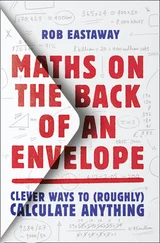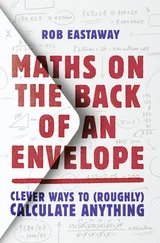But the trolley cut short the lecture in philosophy. Suddenly prevented from offering other professional secrets, colleague Teodosiu Gic  , known as Poxy, a.k.a. the Boss, made admirable use of his elbows and bags to force a way through the hysterical mass of people, to be first in the ark of salvation. Receptionist Anatol Dominic Vancea Voinov found himself alone once more, guilty at how depressed he felt and at how distrustful he was in the presence of his daytime and nighttime interlocutors.
, known as Poxy, a.k.a. the Boss, made admirable use of his elbows and bags to force a way through the hysterical mass of people, to be first in the ark of salvation. Receptionist Anatol Dominic Vancea Voinov found himself alone once more, guilty at how depressed he felt and at how distrustful he was in the presence of his daytime and nighttime interlocutors.
But the woman reappeared in his nocturnal reveries, laughing, crying, neighing, rehabilitating the therapy of the heart’s desire, parodying pleasure as the grimace of liberty. And did Sleepwalker Tolea let himself be seduced!
Cool, lucid night. The absent dead, like the living; situated in eternity, from where everything could be seen perfectly, as if nothing could be seen. The woman reappeared, scrupulously, invented herself anew, at once immediate and fictitious. Sometimes he even saw her in the illegible daytime sky, the torrid blindness of the crowd. Attracted, intimidated. At once a longing for abandon and an immense fear. Death — yes, that was probably what she was, the beautiful and insatiable one. Tender, ravenous, hospitable, enveloping you in desire and faintness and panic: Death. The mask of indifference and joy, the voracious glitter, the frenzy, the extreme intensity.
Nor was she an abstraction. She had a name, an address, a telephone: she could be reached. But the sleepwalker did not have the courage. He just tried to forget the vortex of imponderables, and then to escape again into the confused murmur of the street. Despotic spring had made the prisoners hysterical. The heart of the ants had grown enormous, roaring like a compressor. Giddy intoxication, through stinking parks full of garbage and policemen, in the dark of lifeless boulevards, in the crowd standing in front of empty stores or trolley stops overcrowded with passengers, in the intense heat, and in the capricious rains of the underground. He came back exhausted from these sleepwalking adventures, but would go out again to rediscover the excess tiredness that cured him of despair. Back in the street, he found the tumult again. Chimerical series, accelerated emissions of magnesium, a pink smoky fog perforated by the tingling of aerials.
It was a strange twilight: spring was winter and he was in front of the Atheneum. The woman was on the other side of the road, coming from the Palace. He had seen her in the distance as she approached. She was wearing high boots, far above the knee, which gripped like funnels her brown velvet trousers. Her body seemed frail inside her large red fox-fur jacket. She crossed the street and walked up the drive. Her face had a gleaming pallor, eyes shining provocatively beneath a perfect forehead and hair carefully brushed around her temples. She moved among the groups of music lovers waiting to go into the concert. She responded to greetings with a youthful wave of her arm and hurried off toward the entrance. There she stopped for a few moments in front of a man who seemed to have called out to her. A merry conversation: her lively, luminous, unforgettable laughter rang out. The man could not be seen. Facing away, much shorter than the woman, he stood on tiptoe to kiss her hand as they parted. And as he turned after her, his face became visible — the spitting image of Pushkin! Long side-whiskers, thin beard. “Oho, it’s you, Doctor! I thought you liked your music at home, not in public.”
“Today’s the exception. A special case.”
“And the lady? Is she a patient?”
“No, no. No. I’ve known her a long time. The wife of a colleague.”
“What kind of a colleague is that? Combatants call each other comrade, not colleague. And I didn’t even know you were an ex-combatant.”
“I’m not. The lady was once married to the famous head of a clinic. I spent some time working under him: he was my professor.”
“She still looks young, the professor’s ex-wife. Now she’s married to an ex-combatant.”
“Yes, yes. There was a scandalous age difference. She was younger than his daughter from another marriage. If the old man’s still alive, he must certainly be missing her. And if he’s reached heaven, then I’m sure he’s still missing her. He’ll be bored without her. She was a wonder, a breath of life. A ray of sunshine.”
“Who? The Great Whore from the Bible? You know that’s what they call her.”
Dr. Marga refused to smile. The face shaded by its romantic beard remained unmoved.
“What nonsense! You just chatter away. The sources of joy are few and far between in this life, my friend. They must be cherished, you know. True happiness is an intangible force; and the lady warms the cockles of your heart. Don’t listen to the mob — it’s just stupid gossip you’ll hear from them.”
“But yes, I do listen. Do you know Toma? Manager Toma A. Toma?”
“Which Toma? The saint, or the other one, the doubter?”
“I’m not joking, Doctor. Toma, the exemplary deaf-mute! Who sees and hears and finds out everything, but only tells when and whom he’s supposed to. A very precise man, with a lot of experience and practical sense. He doesn’t give two monkeys about our fellow citizens; he doesn’t think substitutes are dangerous. But he keeps an eye on anyone who — or who might — or who—”
“Come on, quit the fooling. Let’s go into the concert.”
“Toma has no faith at all in our fellow creatures. He doesn’t think their improvisations are dangerous. Toma the professional could be mistaken, though. After all, he’s an expert in the real world. And well, this Lady of Delights is a substitute, too. That’s all she is, you know, Doctor.”
“She’s no substitute! I saw her not long ago: she came to see me at the hospital and—”
“So she’s a patient, after all.”
“No way. She’s a cure, not an illness.”
“Death, Doctor, that’s what she is! The Great Whore of the Apocalypse. The unclouded happiness, contented indifference, and superb vitality of death.”
“That’s enough of the metaphors, kid. She came to the hospital about a patient.”
“Ah, it must be her exemplary new husband, the ex-combatant. A gala patient. They’ve screwed him up good and proper, Doctor. His exemplary comrades have put death next to him in bed to finish him off. As I said, it’s only in exceptions like him that Toma sees any danger. The Exemplary Association knows how to manipulate the happiness and delights and temptations that will wipe him out. It’s possible that Toma thinks even I am dangerous, like the dreamer caught under the skirts of the Great Whore.”
“Cut the crap, for God’s sake. I don’t know the lady’s husband, and I’m not interested in him. I’ve heard something about the Ianuli legend, but I don’t find it interesting. I deal with reality, you know. The most burning reality. That’s my profession.”
“Well, our neighbor Toma also deals with reality. He’s an expert in reality, as I was saying.”
“You’re raving away, kid, and I’m missing the concert. The fact is, the lady came to visit a young student, a distinguished student. A splendid boy. And she asked about him with an infinite, angelic tenderness.”
Becoming irritated, Dr. Anton Marga undid the collar of his starched shirt. He was wearing a light summer suit, the color of forget-me-nots. A light summer suit, although the person talking to him thought it was a sluggish winter evening. In his right hand the doctor was holding a short rubber stick, the case of an umbrella. Now and then, using a fine white handkerchief, he wiped his face, which had been perspiring from the intense spring heat, and also his spectacles, forehead, and beard. “I had a chat with the student when he returned. He confirmed the extraordinary devotion and happiness that Mila represents for him. It must have been love — or sex, as they say nowadays — I don’t care. A sentimental education, you know what I mean. And not only of the body, you can be sure. A therapy in which the concentration is so intense it brackets evil out.”
Читать дальше

 , known as Poxy, a.k.a. the Boss, made admirable use of his elbows and bags to force a way through the hysterical mass of people, to be first in the ark of salvation. Receptionist Anatol Dominic Vancea Voinov found himself alone once more, guilty at how depressed he felt and at how distrustful he was in the presence of his daytime and nighttime interlocutors.
, known as Poxy, a.k.a. the Boss, made admirable use of his elbows and bags to force a way through the hysterical mass of people, to be first in the ark of salvation. Receptionist Anatol Dominic Vancea Voinov found himself alone once more, guilty at how depressed he felt and at how distrustful he was in the presence of his daytime and nighttime interlocutors.










